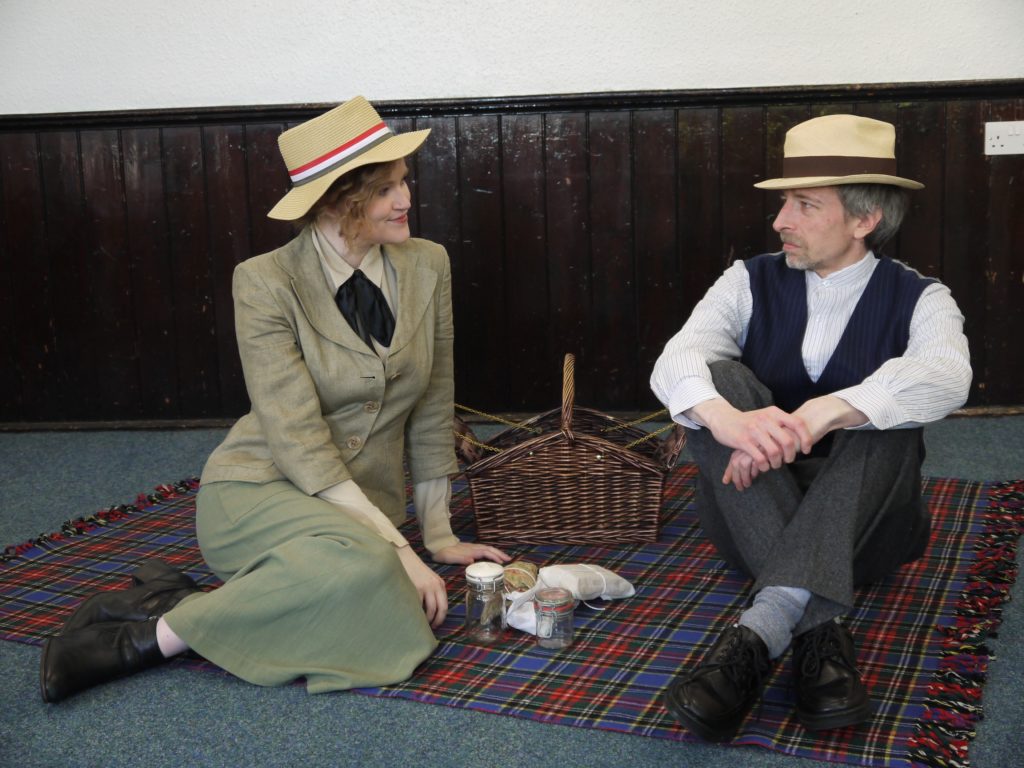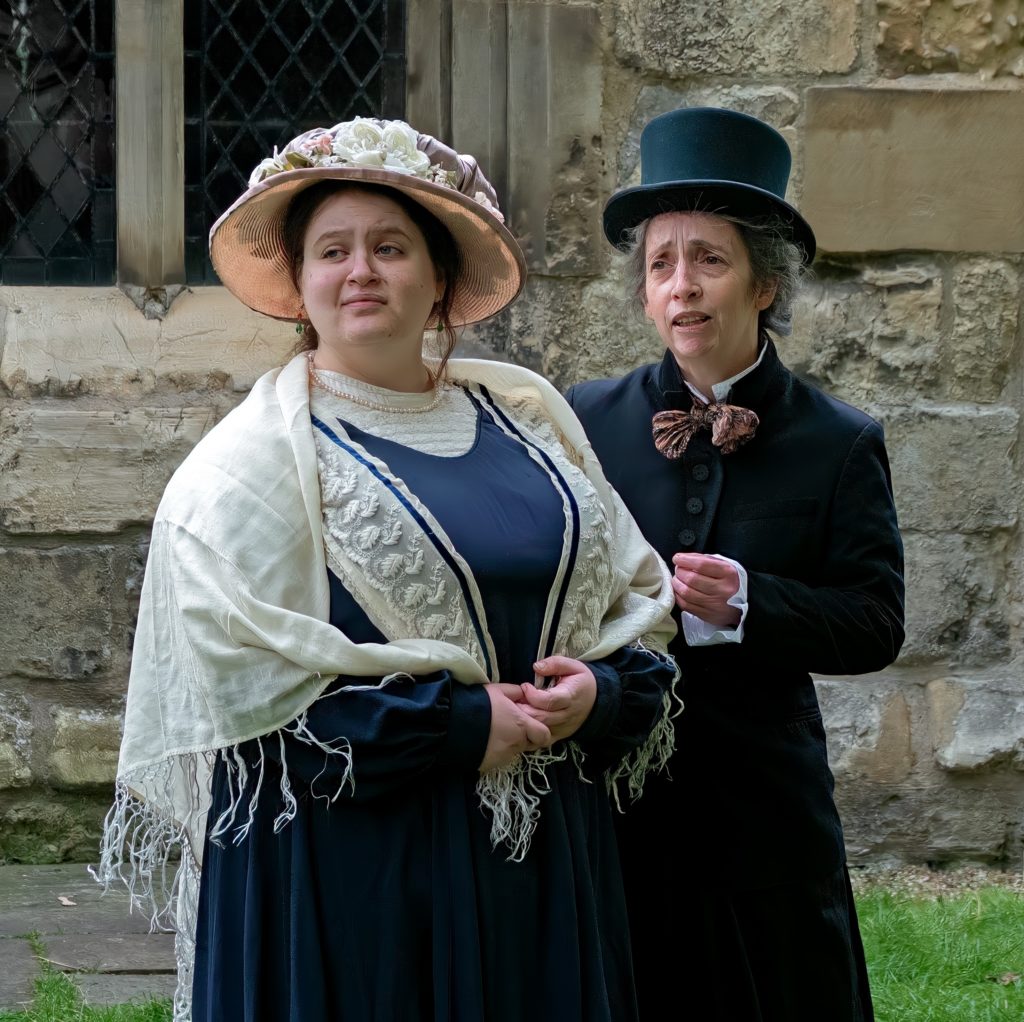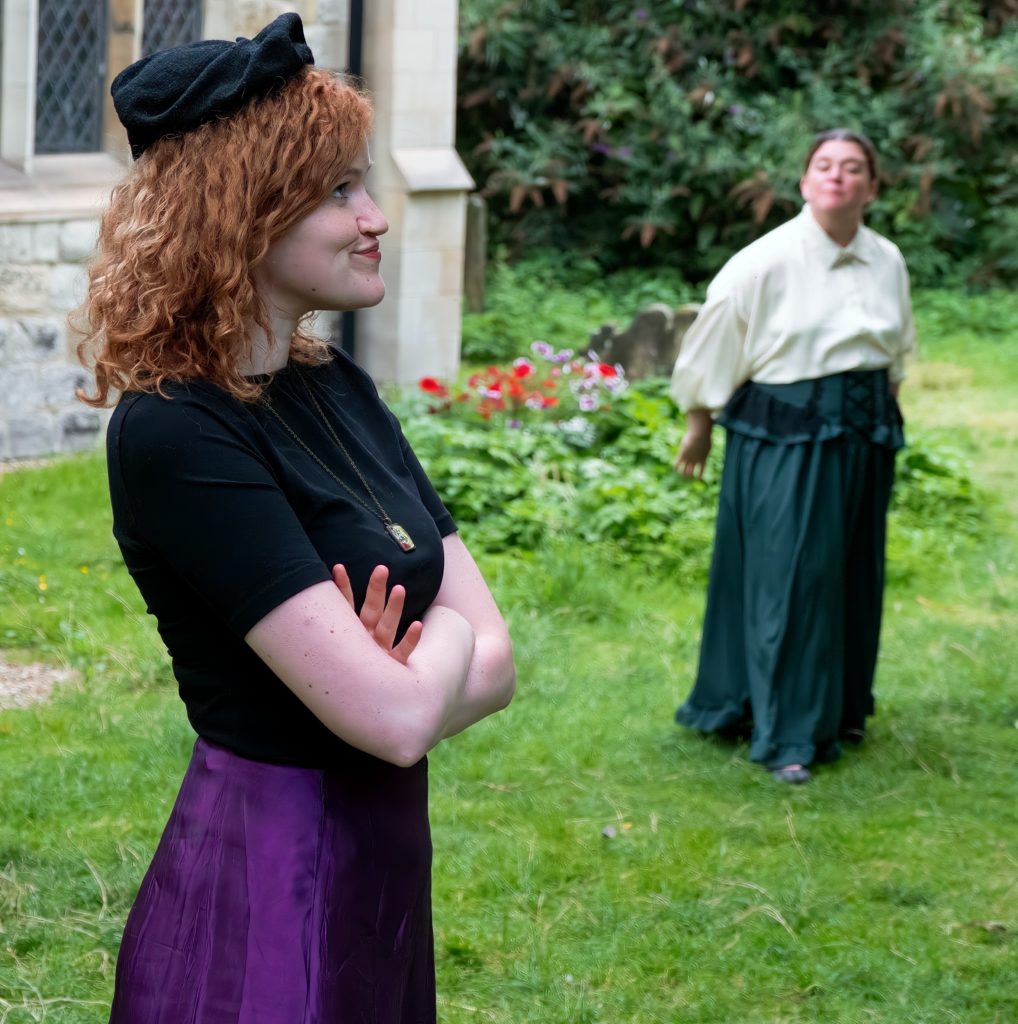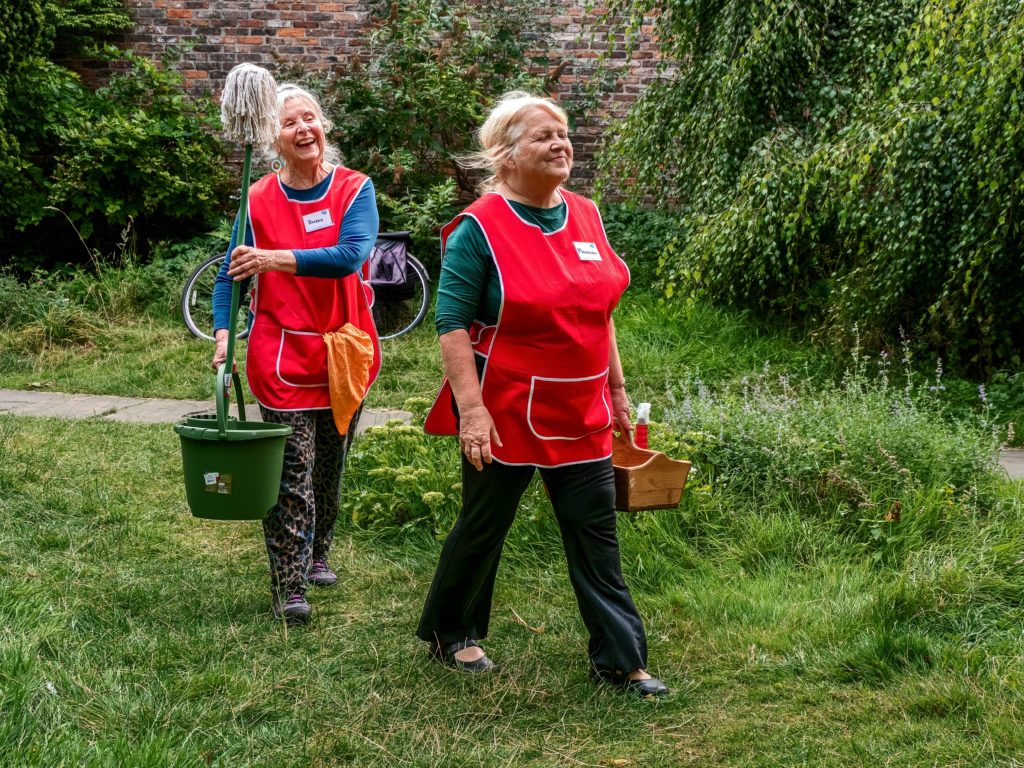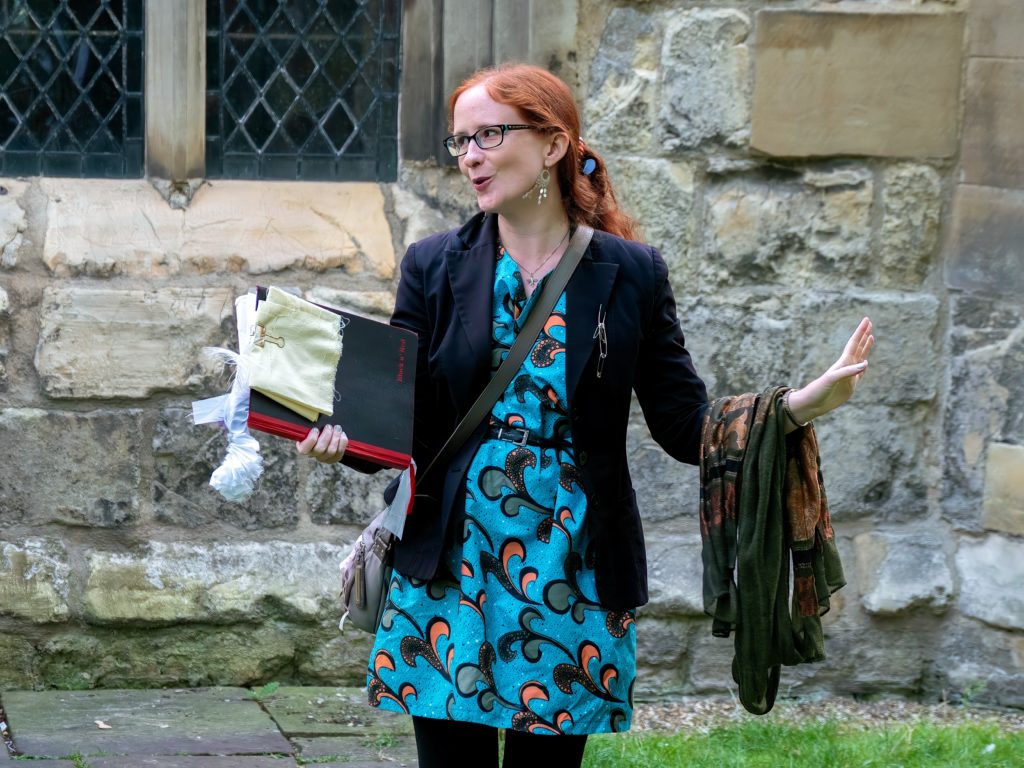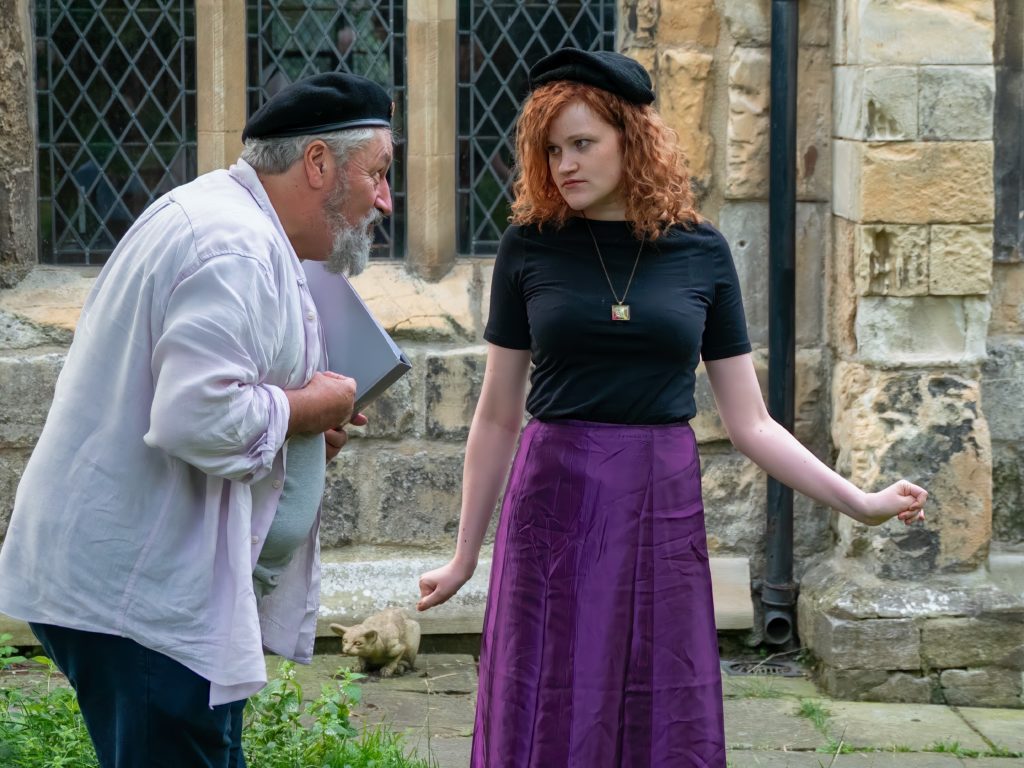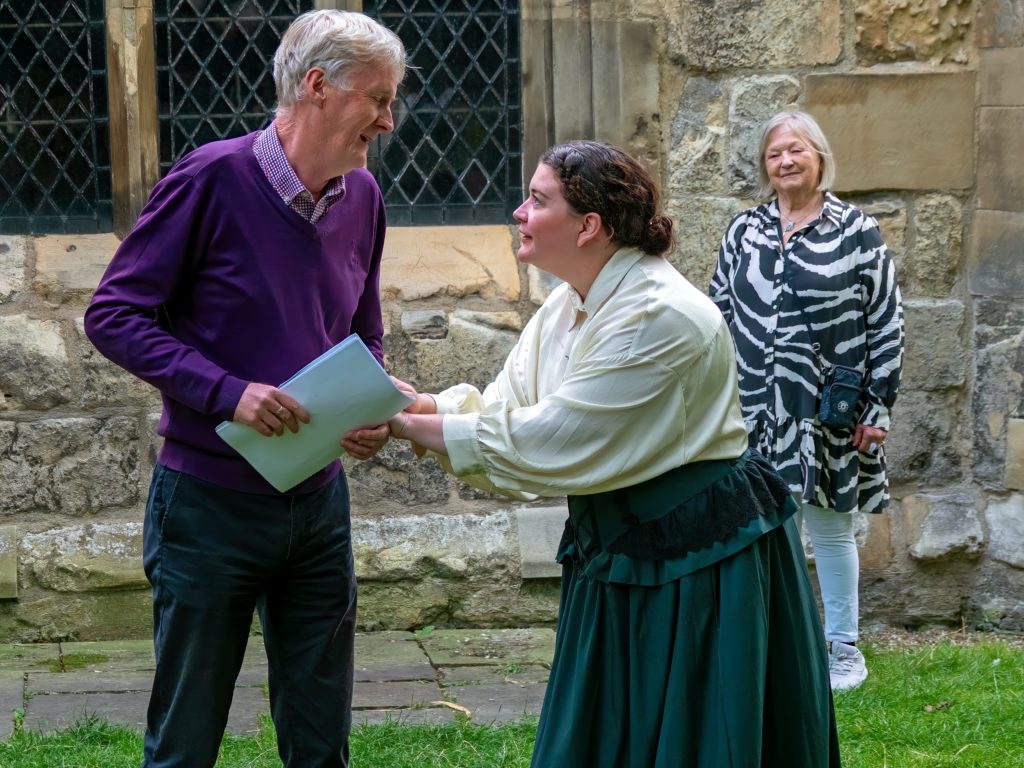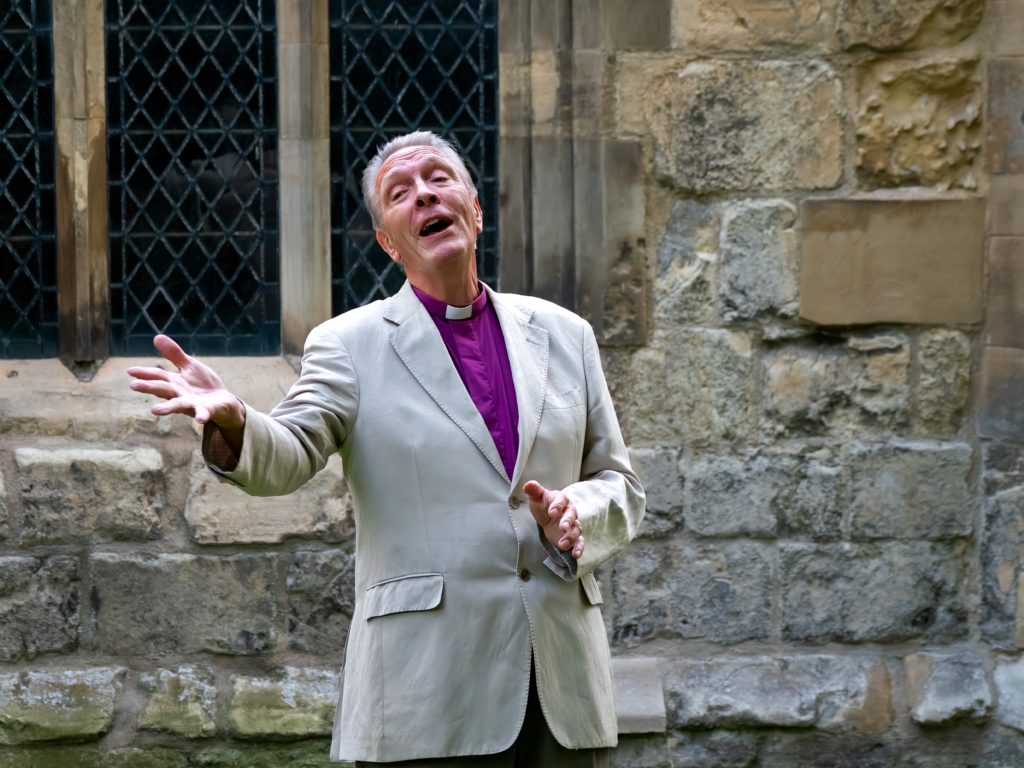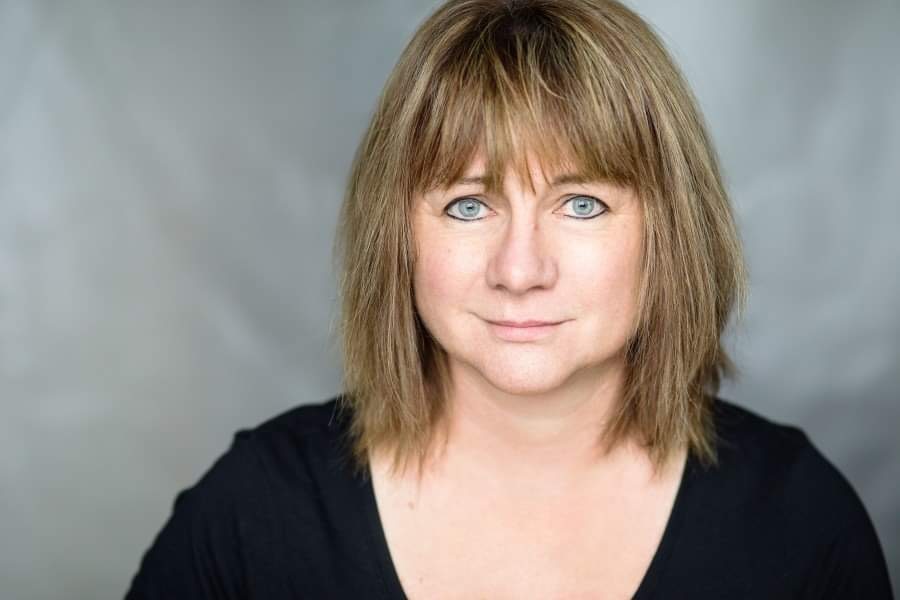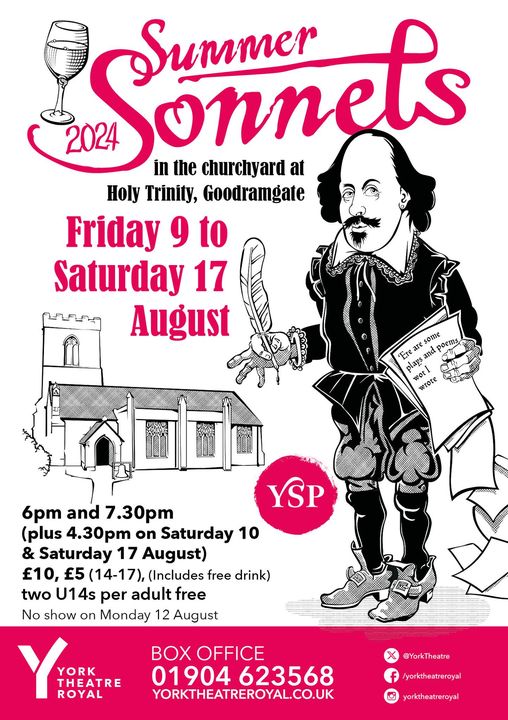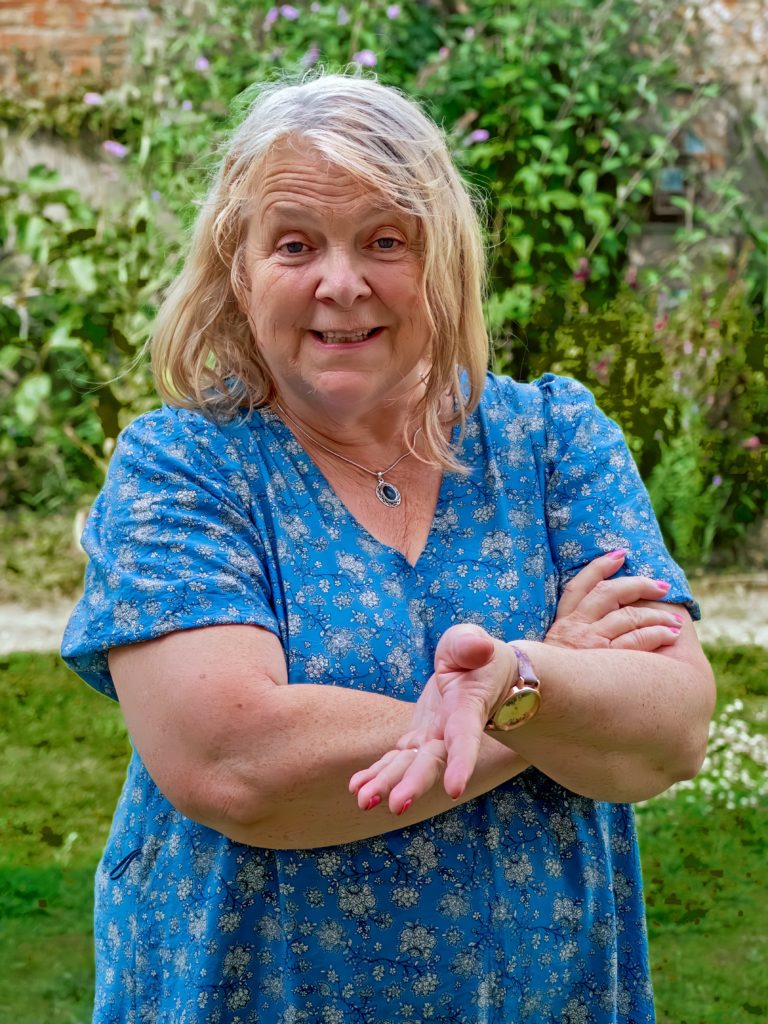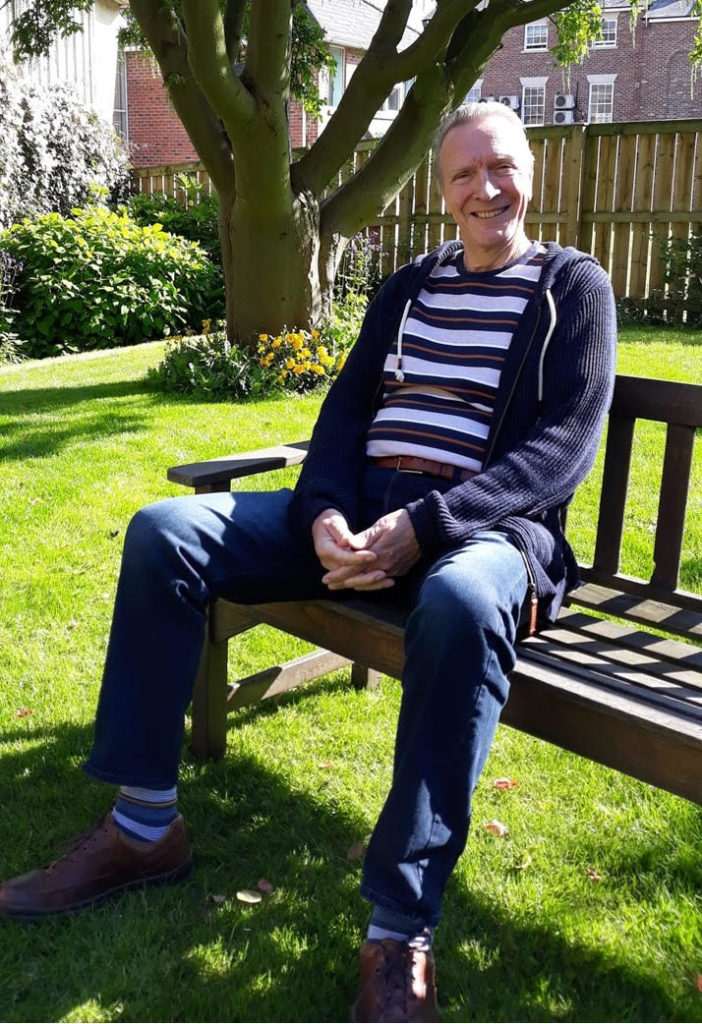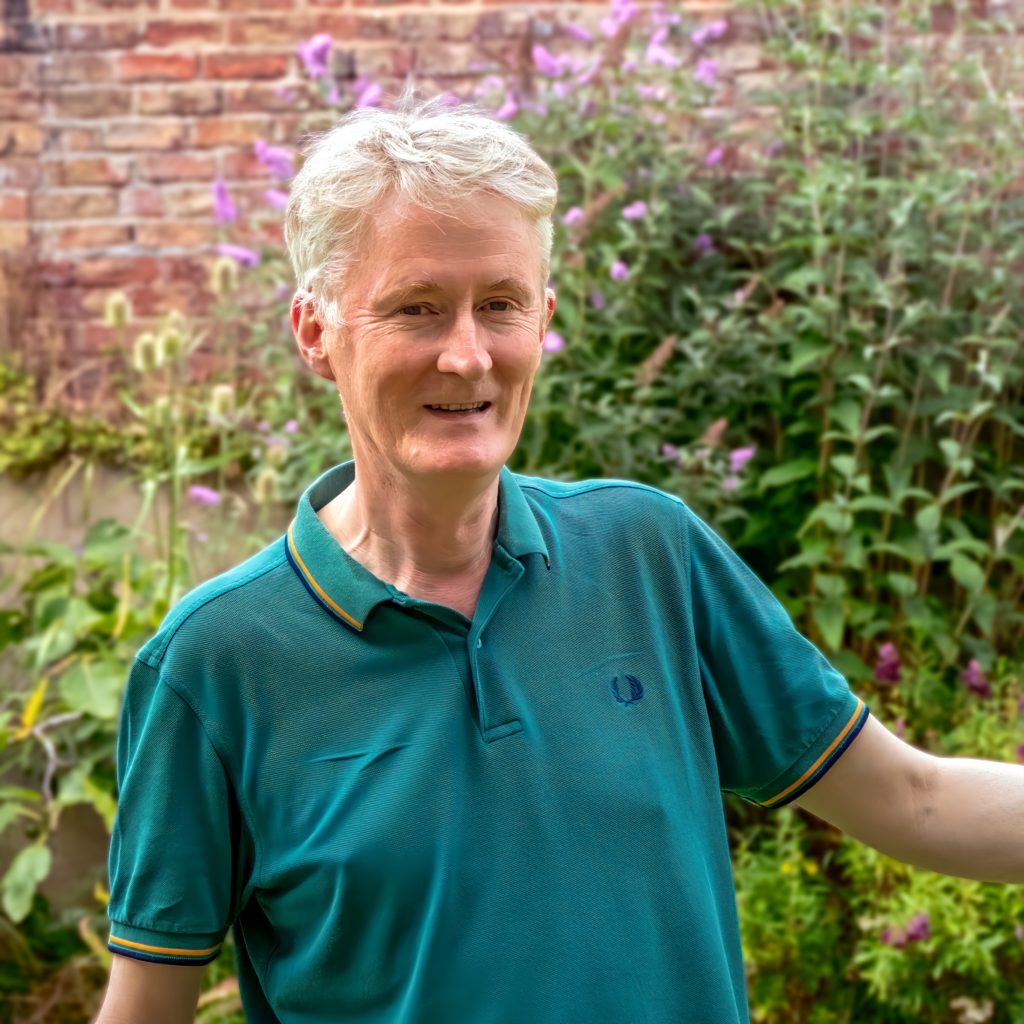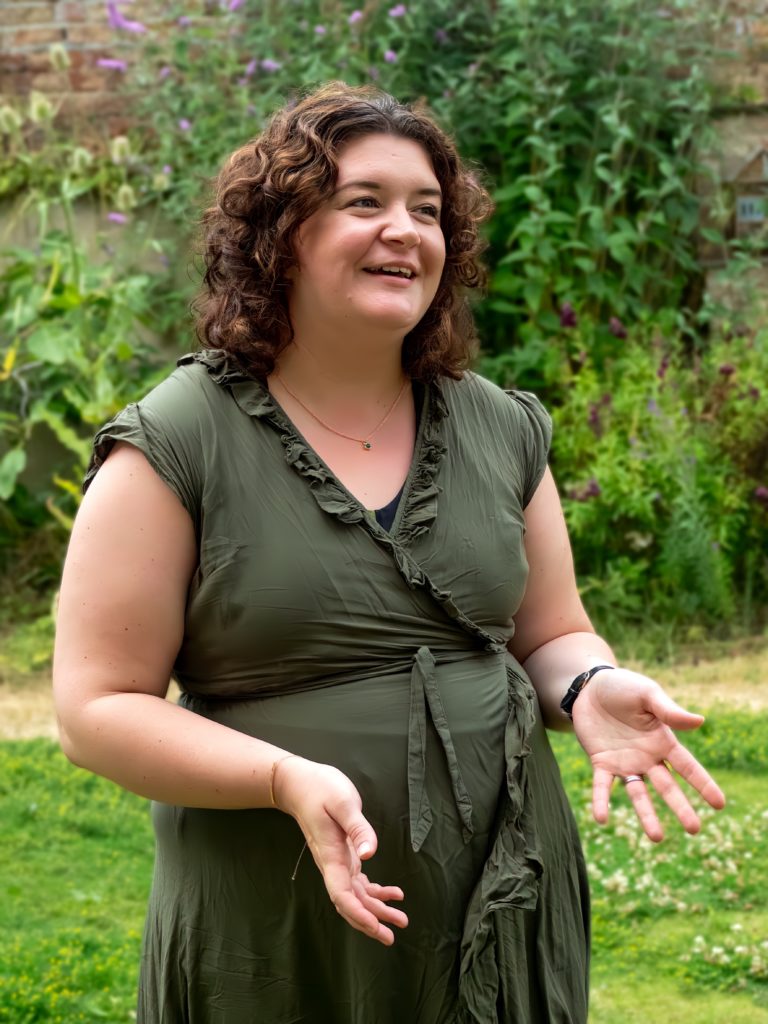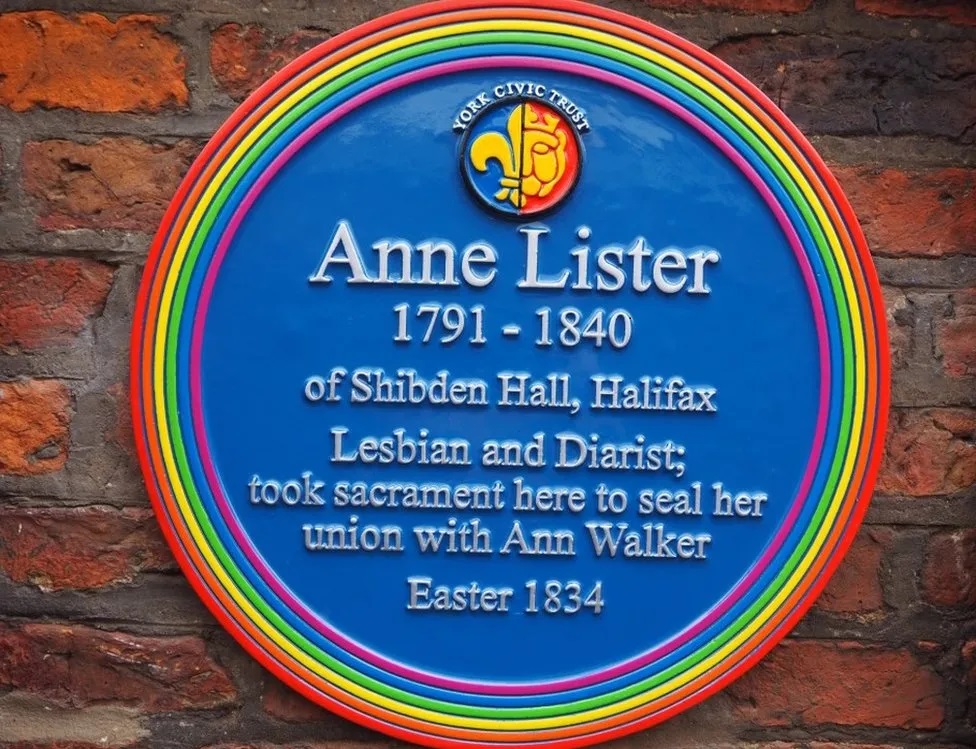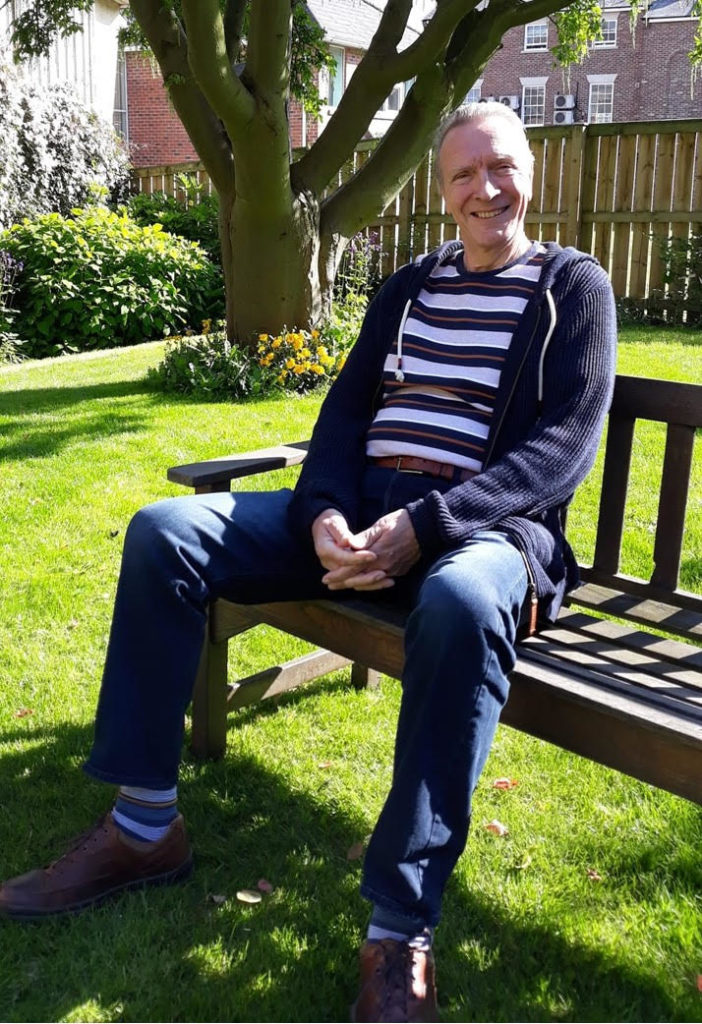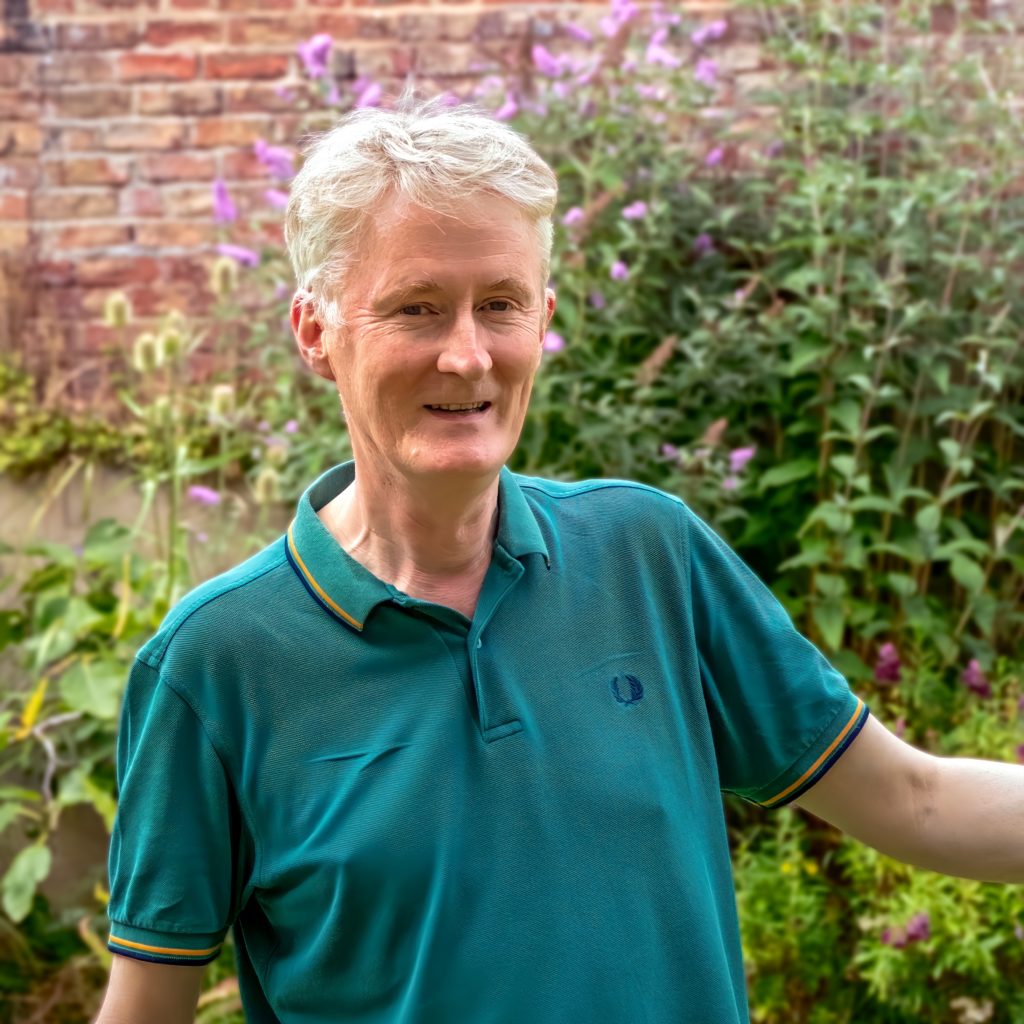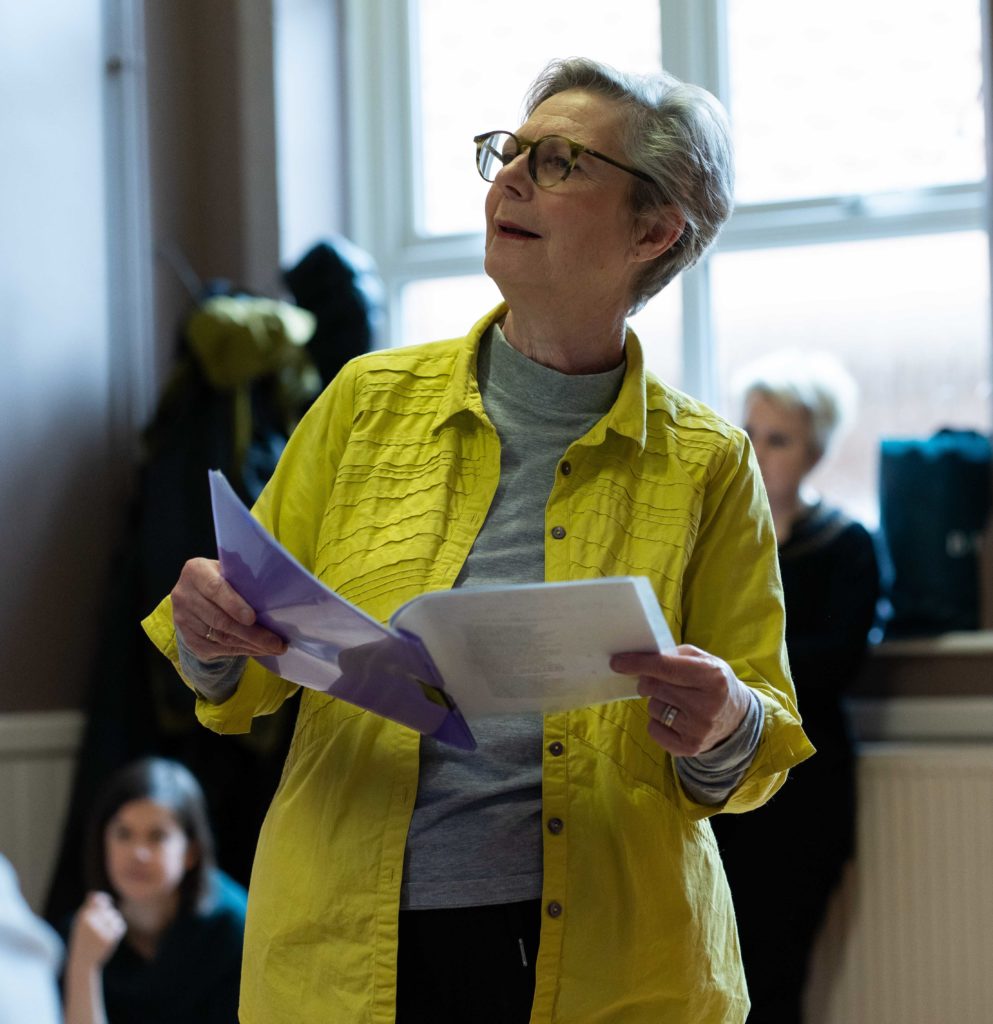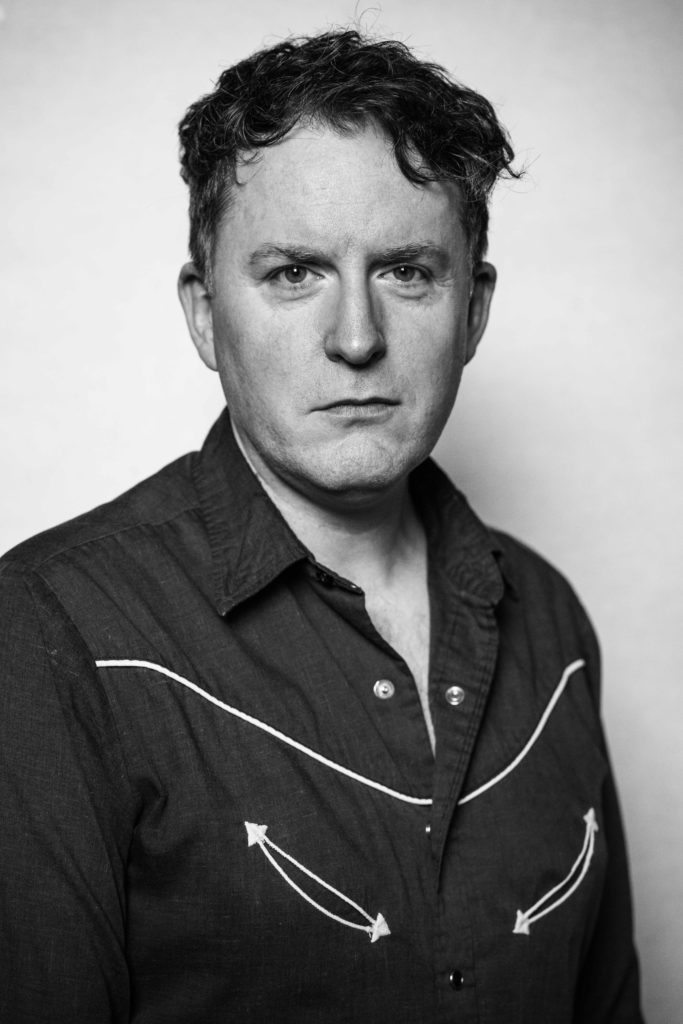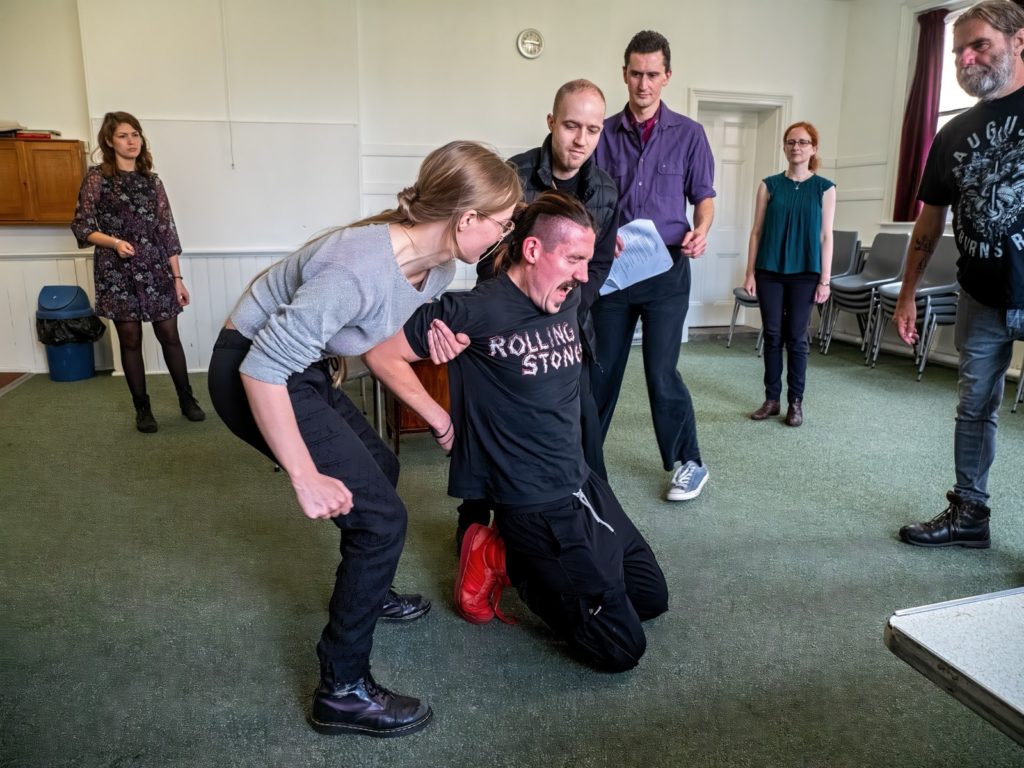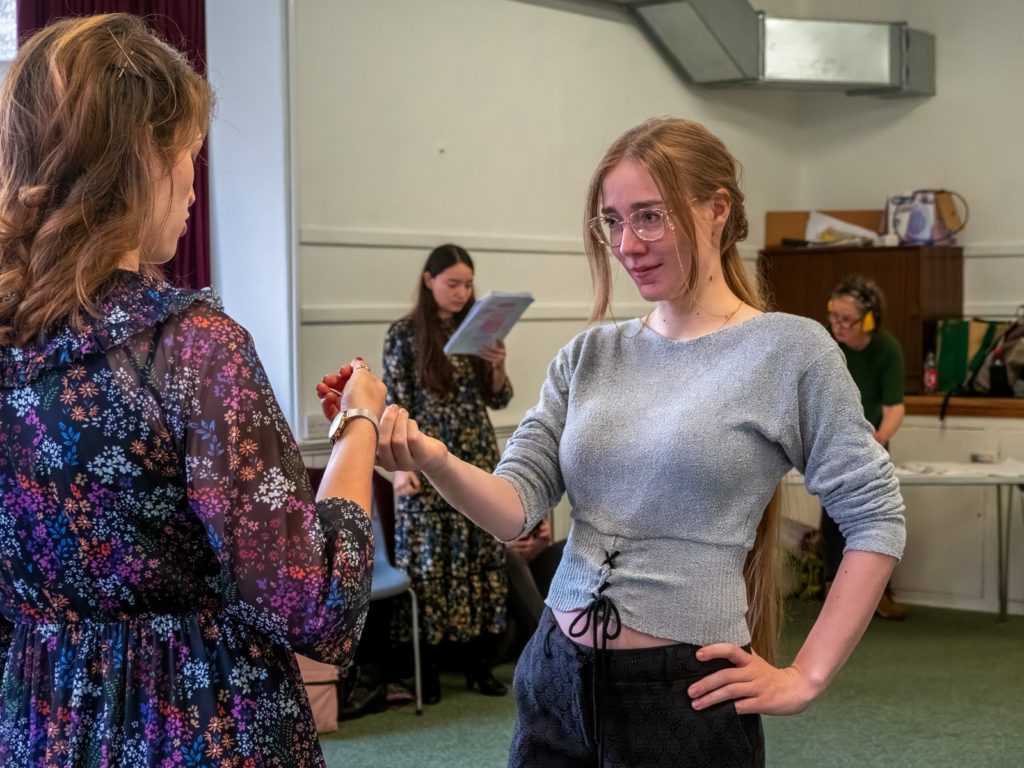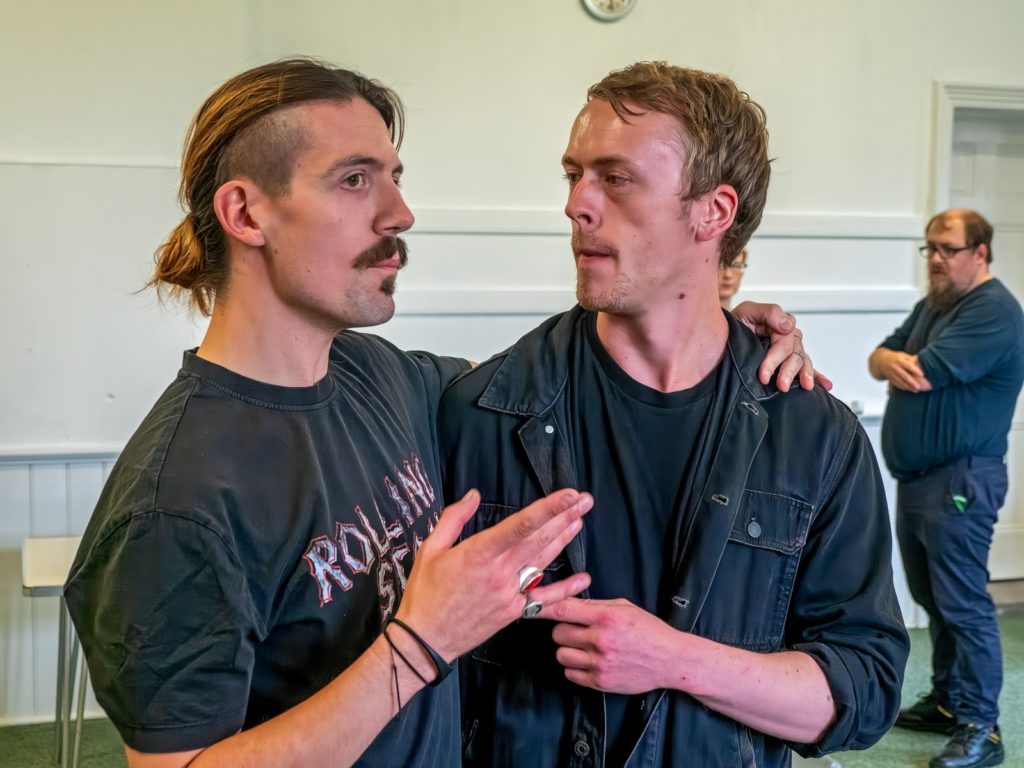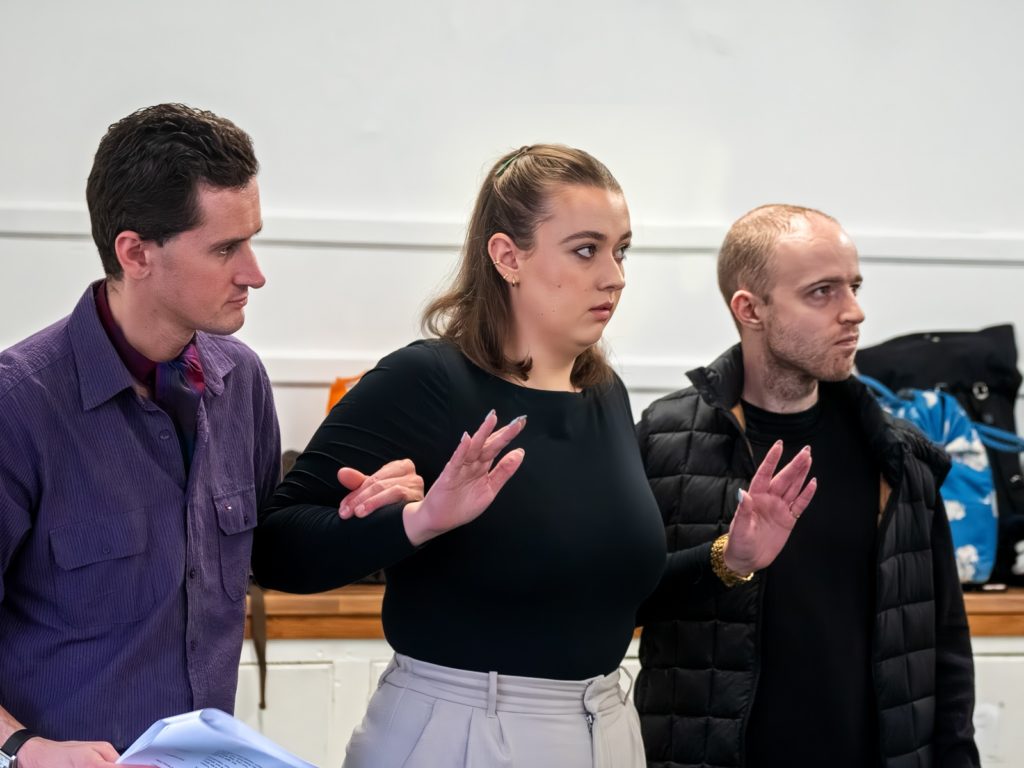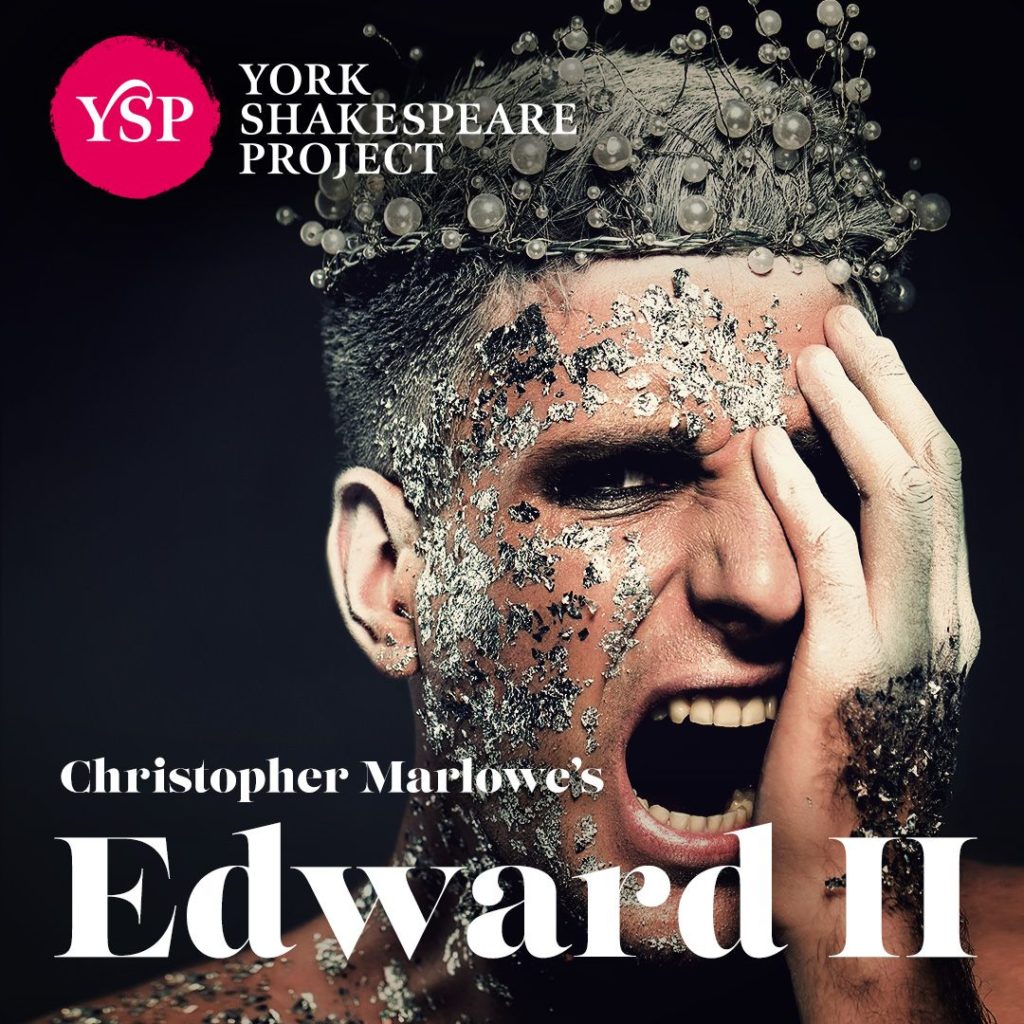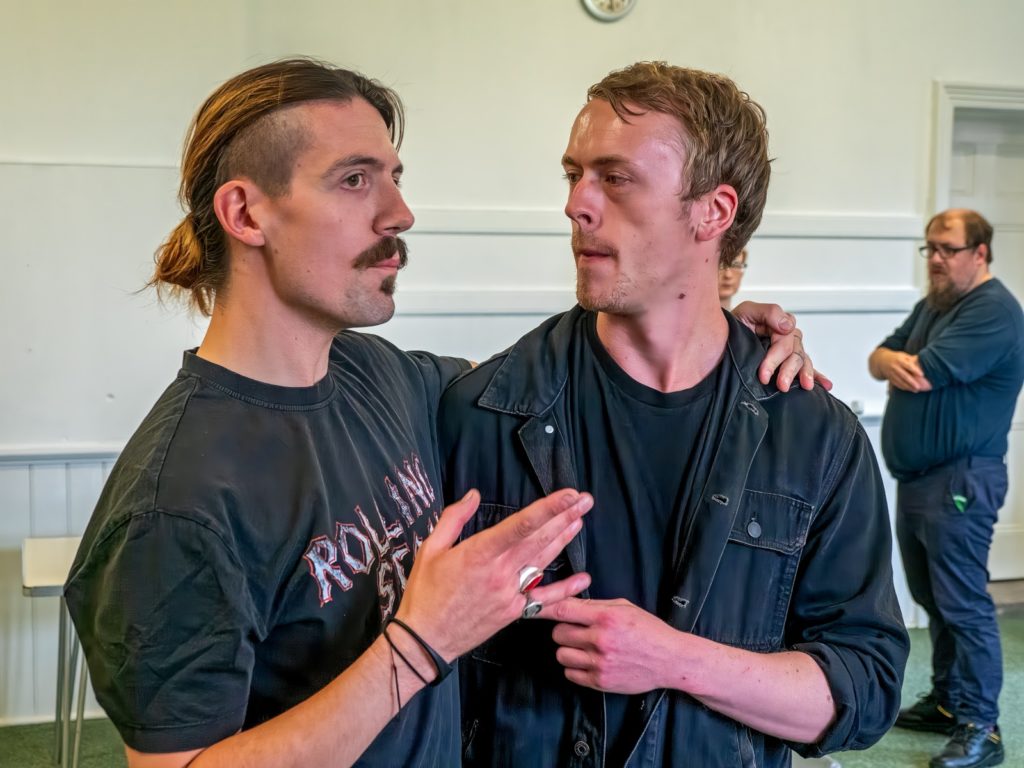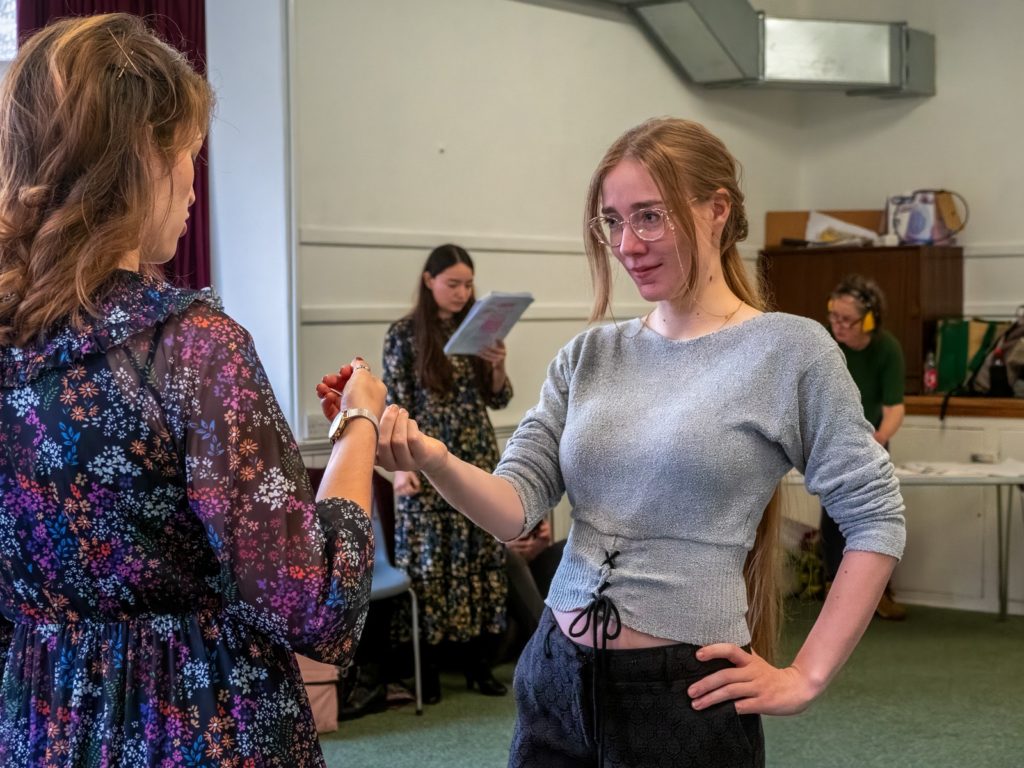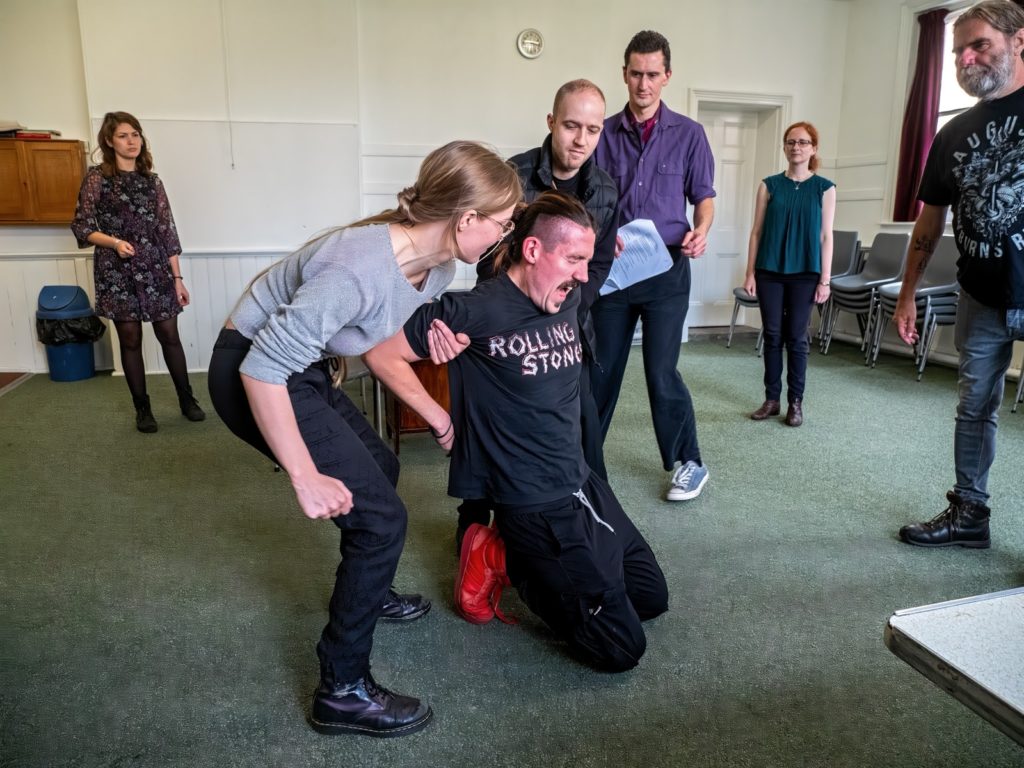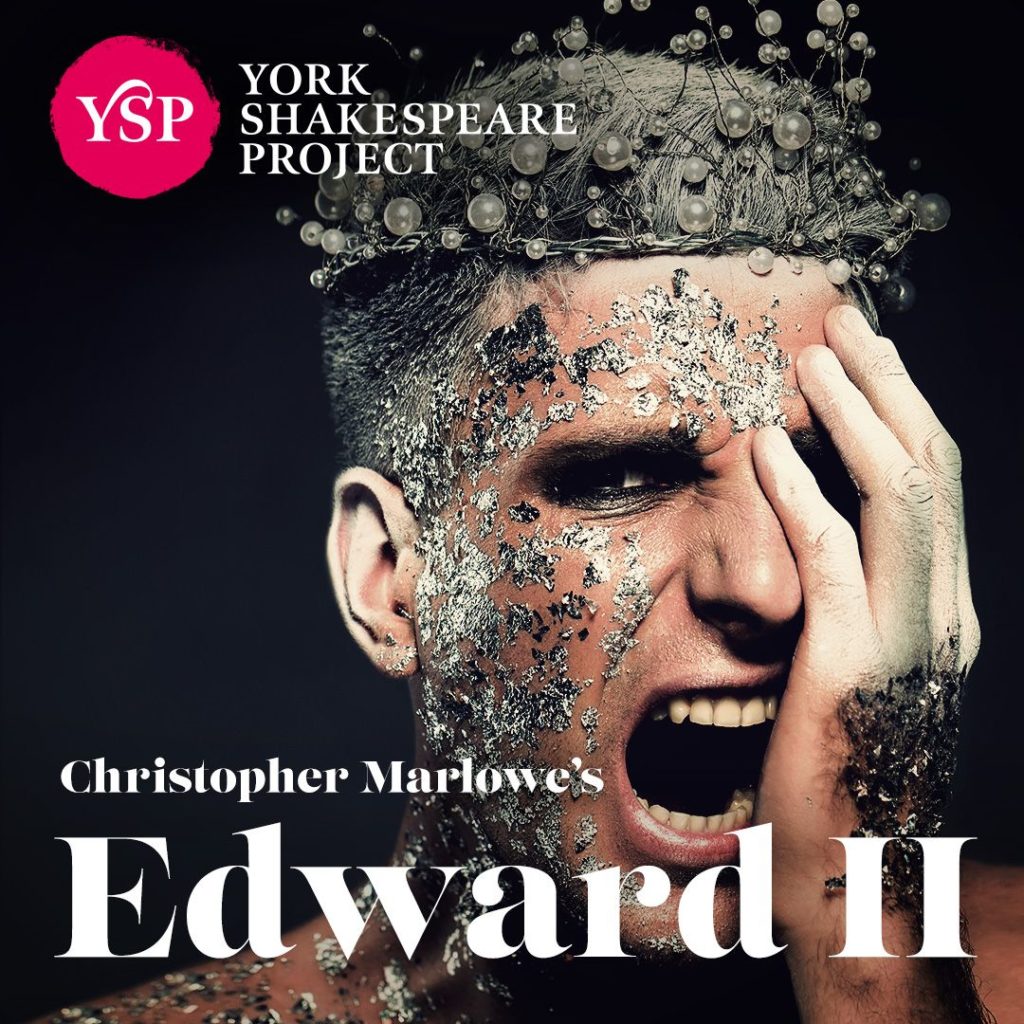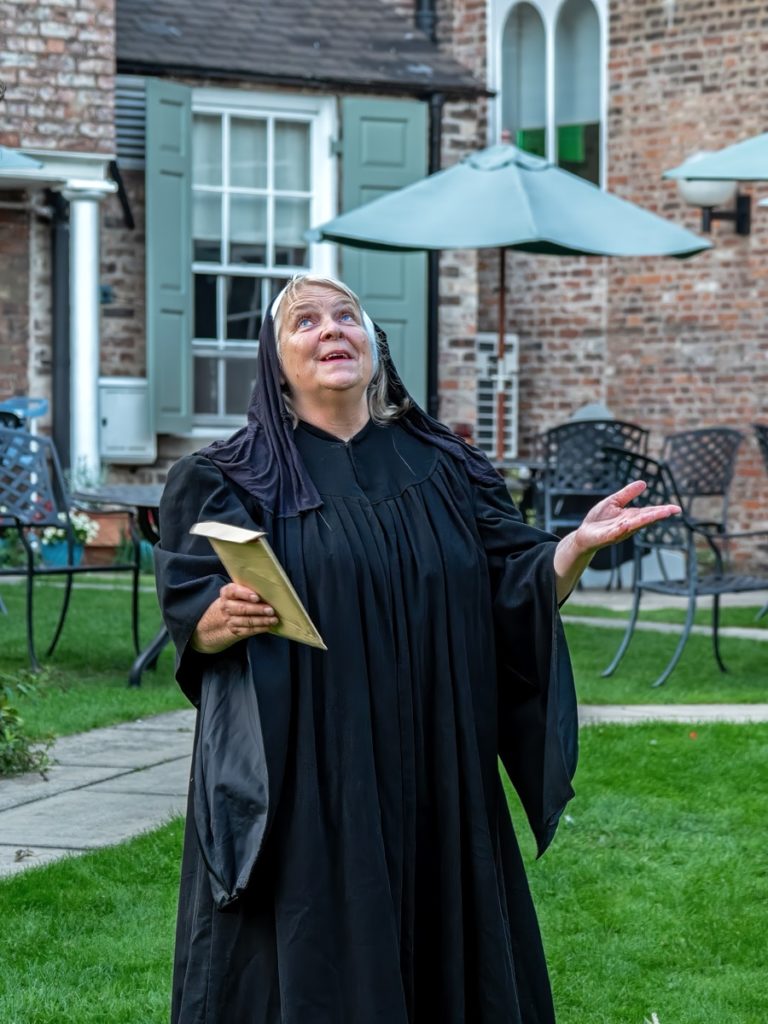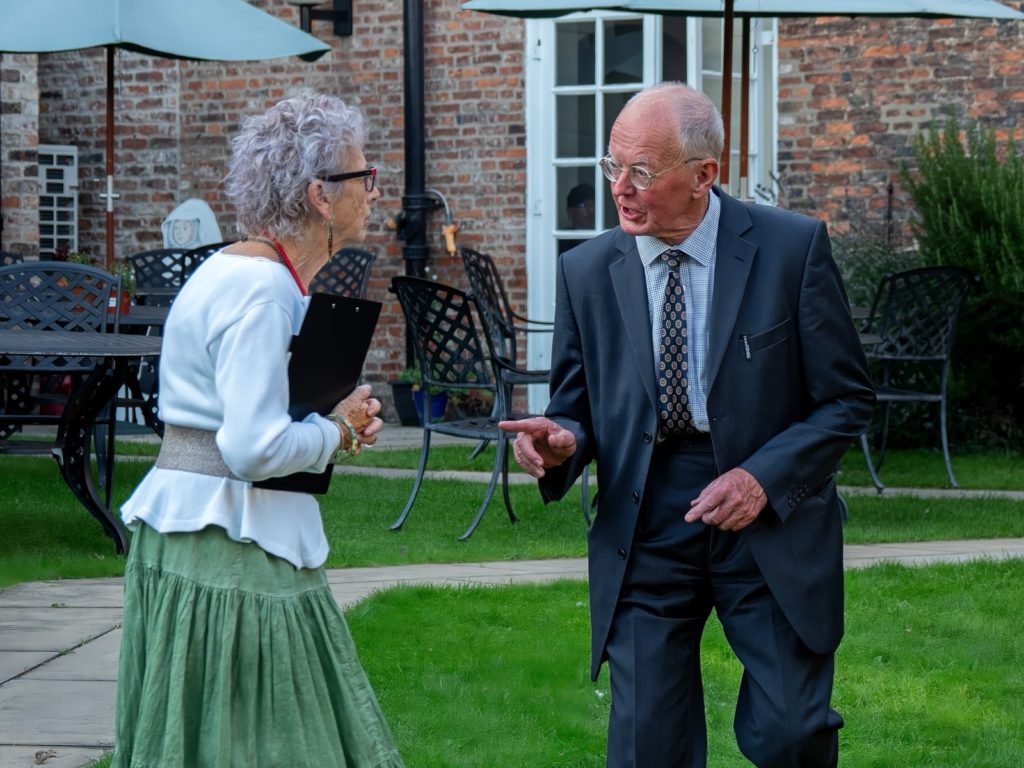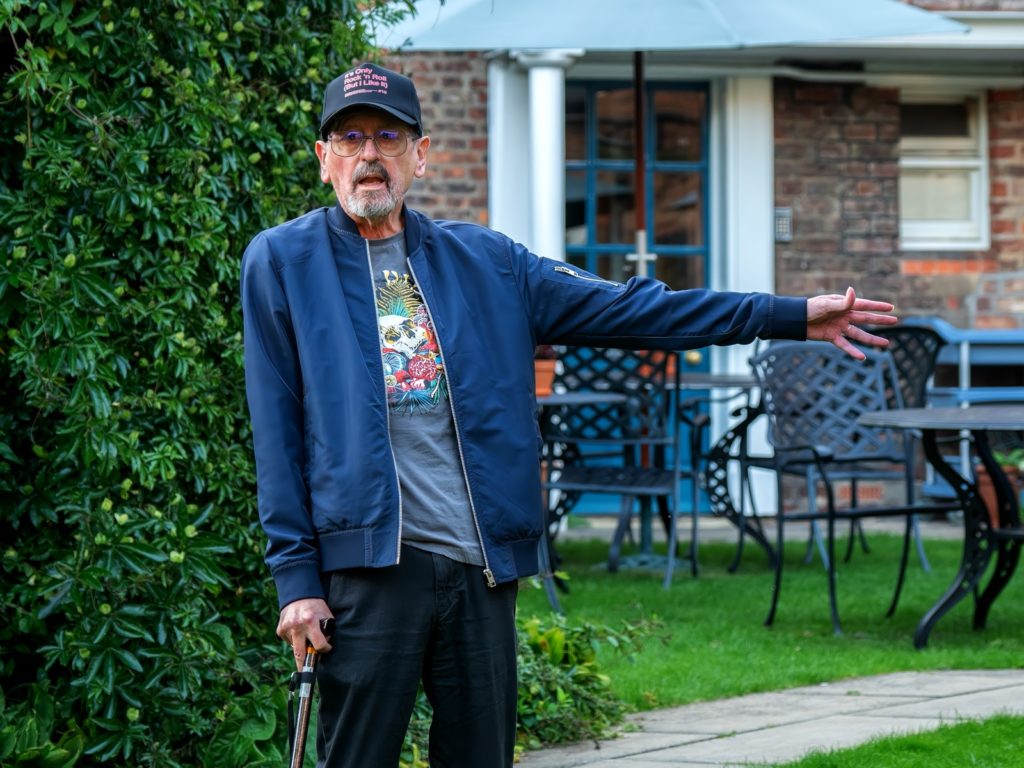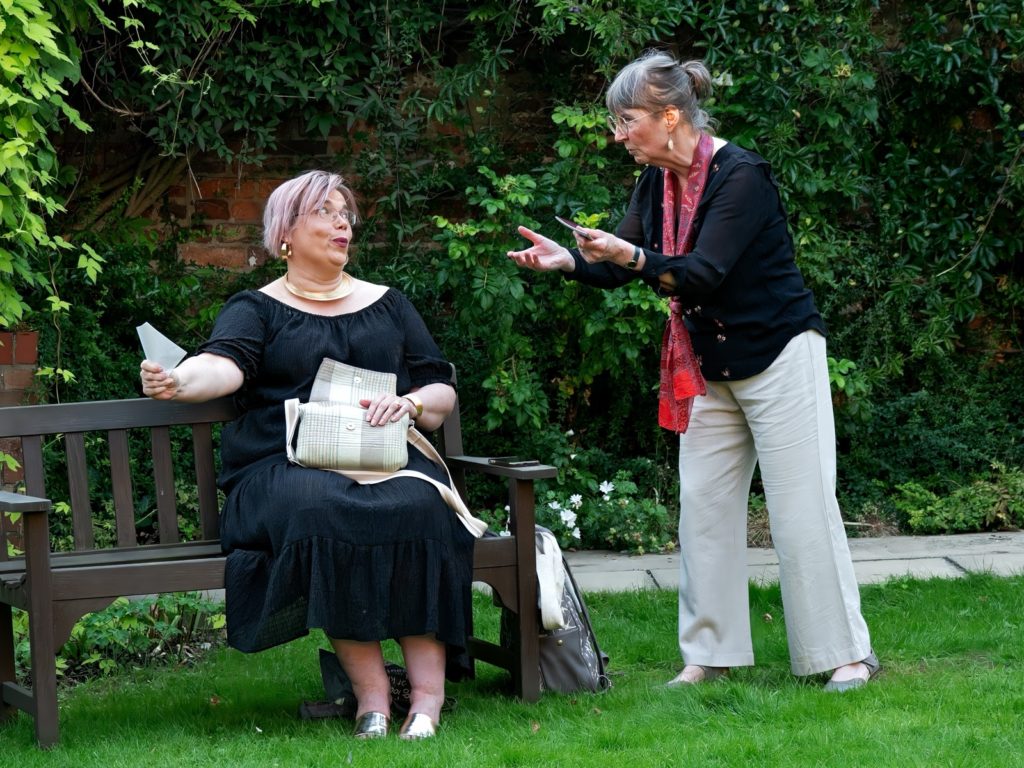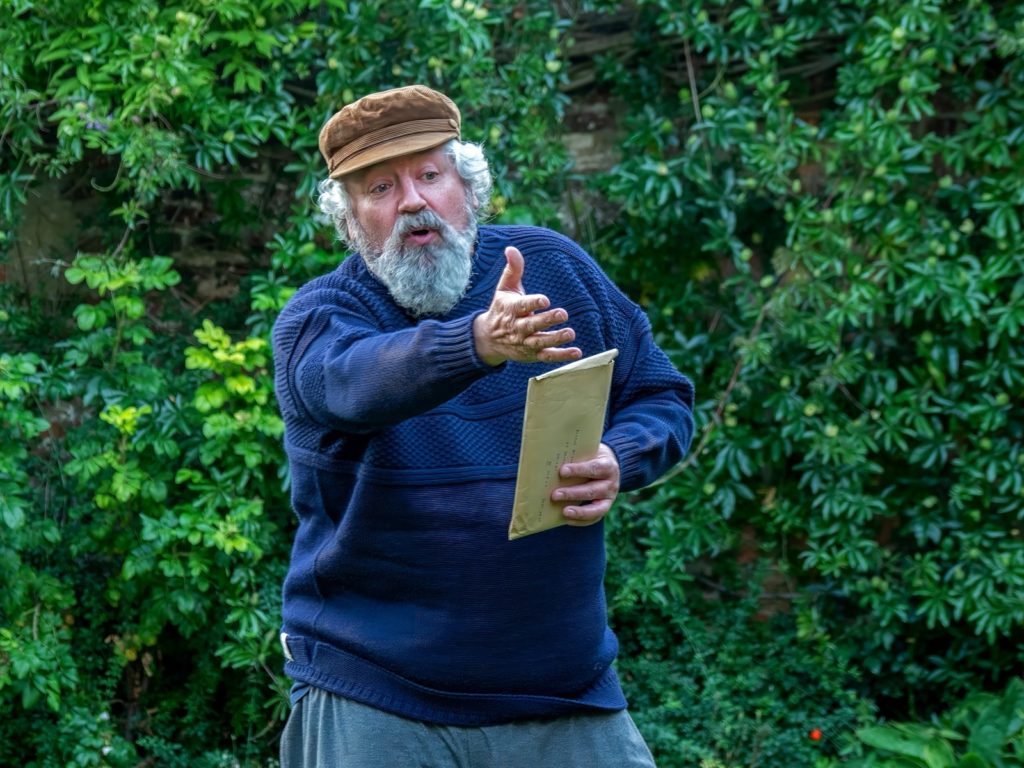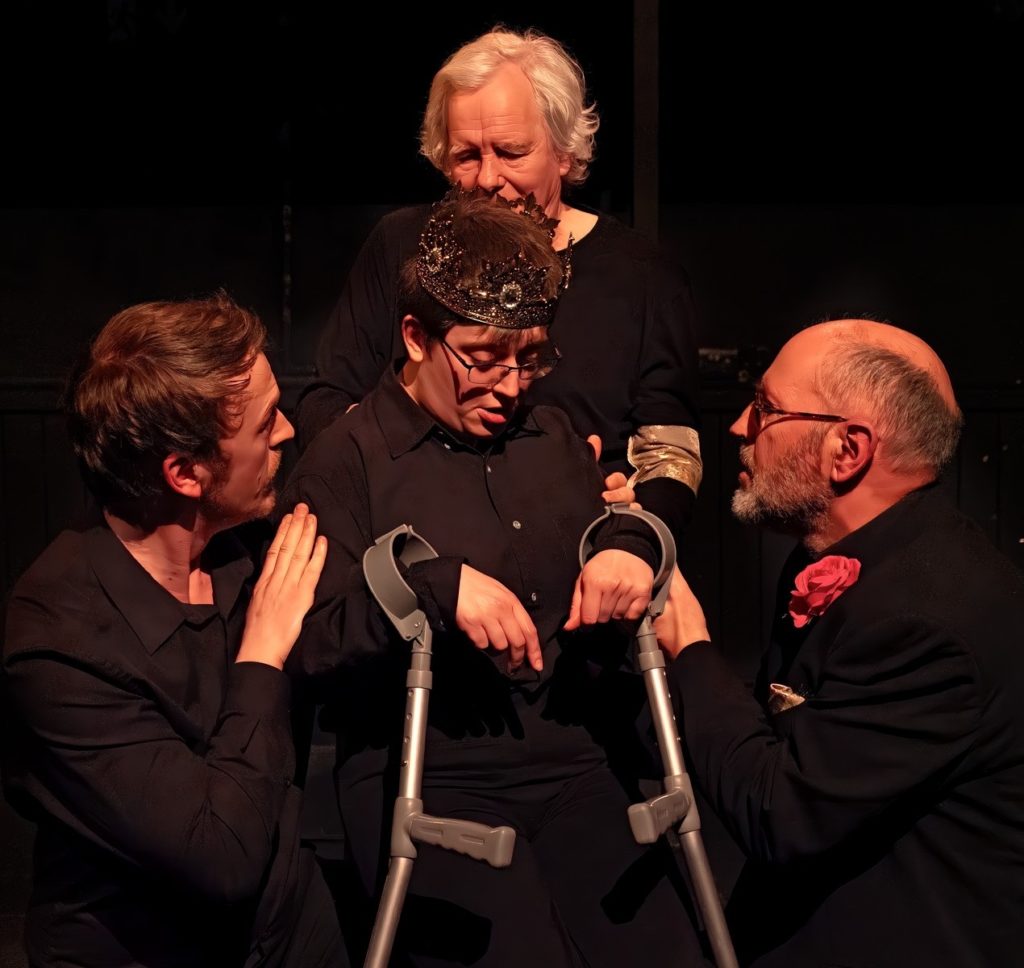
George Young as the weakling king Henry VI in York Shakespeare Project’s Henry VI, Parts 1, 2 and 3, I Am Myself Alone. Offering support are Jack Downey’s Suffolk, left, Frank Brogan’s Clifford and Nick Jones’s Somerset. Picture: John Saunders
IRWIN Appel, Professor of Theater at University of California Santa Barbara, first saw York Shakespeare Project in Maggie Smales’s all-female Henry V on his European research travels in 2015.
He vowed that one day he would direct YSP, and this spring that day has arrived with his condensed version of Henry VI, shrunk from a trilogy to a “thrillogy” of an action-packed 160 minutes (interval included) as part of the 2025 York International Shakespeare Festival.
Professional actor, director, composer and sound designer to boot, he has previous form for serving up Appel slices of Shakespeare’s History plays in the award-winning The Death Of Kings. To borrow a technique from the kitchen, he knows the power of reduction to strengthen the intensity, and in doing so he lets the full flavour flood out.

Henry VI director Irwin Appel, left, with York Shakespeare Project chair Tony Froud, who plays Humphrey of Gloucester
There is a swaggering confidence, brio rather than braggadocio, to his directorial decisions, matched by placing his faith in the power of performance by his community cast of 21. They, in turn, have the most collective impact of any YSP company your reviewer has encountered since the project started in 2002.
This is aided by the physical theatre work of his fellow Americans, choreographer and movement director Christina McCarthy and fight choreographer Jeffrey Mills, to complement the mental muscularity of the dialogue, often wittier than you might have expected too, amid the carnage of the ever-rising body count.
Look out for the use of sticks, black face masks and black costumes in the burning of Pearl Mollison’s Joan La Pucells (Joan of Arc] and later Adam Price’s Richard York, with red gloves to denote his decapitation. Bob Fosse would have loved that choreography, redolent of Chicago.
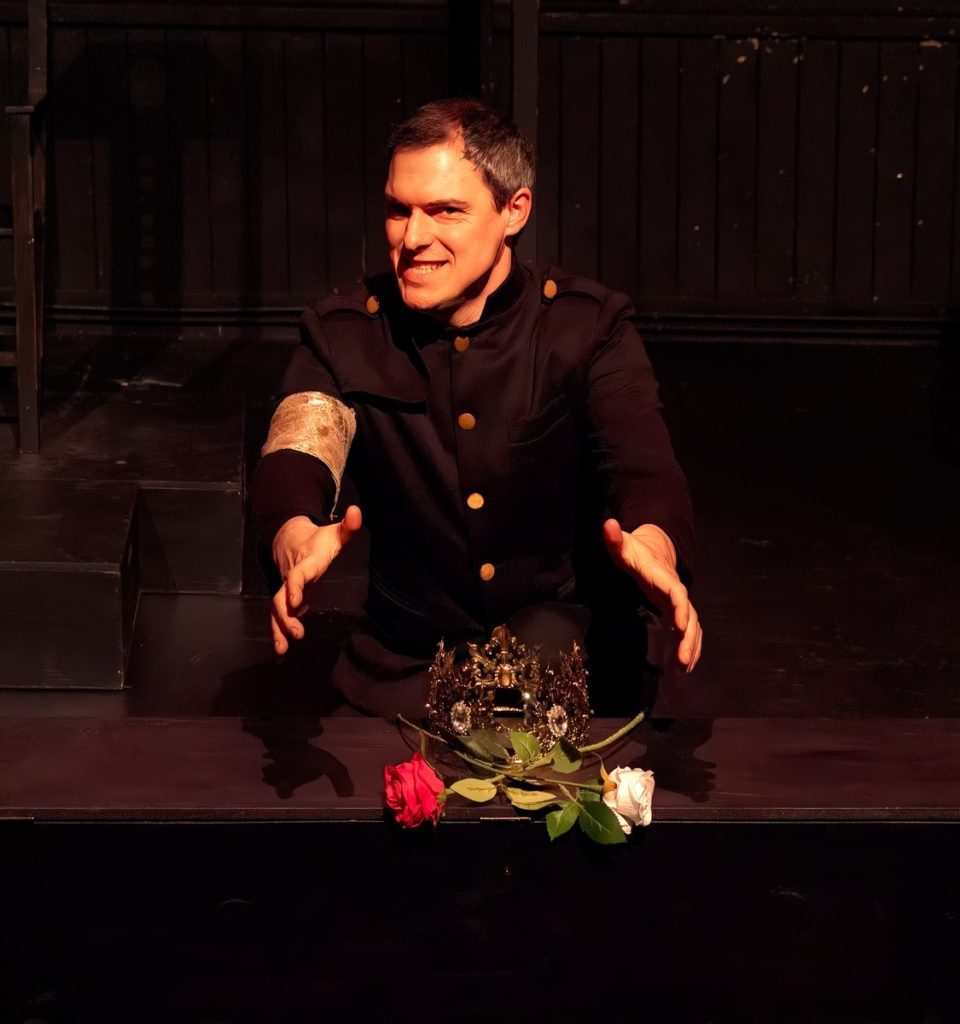
Eyes on the prize: Adam Price’s Richard York in York Shakespeare Project’s Henry VI. Picture: John Saunders
Appel’s Henry VI starts at the end, with Harry Summers’ glowering Richard Gloucester to the fore, foreshadowing his reign as Richard III (a link further emphasised by Appel concluding his production with Richard delivering his Winter of Discontent opening speech from Richard III, bringing the “Now is” forward to now. Seeing Summers’ incipient, spring version of Richard after the full lumpen winter coat of YSP’s April 2023 production of Richard III is canny casting too.
This is but one of several directorial flourishes by Appel, the best of them being Price’s outstanding Richard York giving a beginner’s guide to the chronology of the warring Houses of York and Lancaster and the followers of Nick Jones’s Somerset and scene-stealing Jodie Mulliah’s mutinous Jack Cade switching indecisively from one side to the other with every new promise that each makes. That scene is worthy of Monty Python’s The Life Of Brian.
The mutual flirting of Jack Downey’s Suffolk with Lily Geering’s hot-blooded Veronese queen Margaret is a delight too, although her later screaming histrionics need more variation in tone.
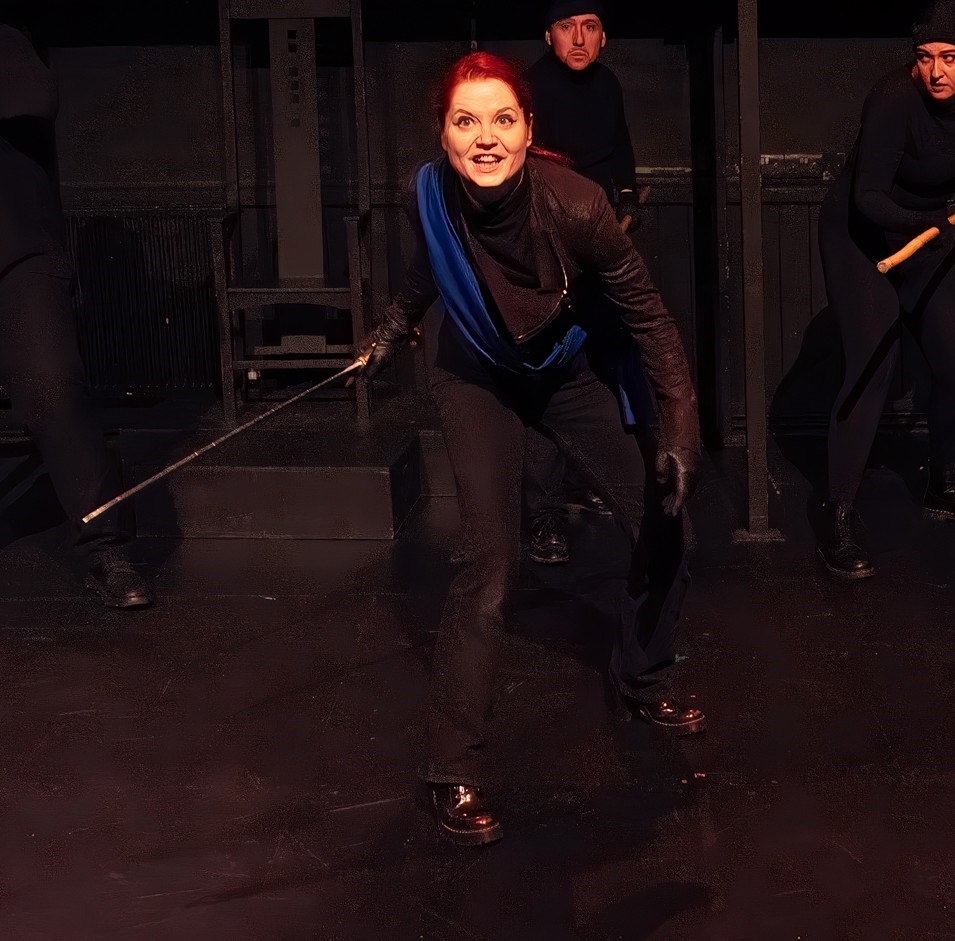
Pearl Mollison’s feisty Joan La Pucelle, aka Joan of Arc
Theatre@41, Monkgate, is a black box theatre, with the emphasis all the more on the black in Richard Hampton’s end-on set design, where everything is black, from the throne to assorted boxes. This enhances the contrast with every other colour, from the silver crown to the glinting daggers, the white and red roses for York and Lancaster to the myriad shades of bleu for the French (from berets to cloaks in Judith Ireland’s costumes).
Appel uses the “theatre of the absurd” skills of regular YSP music director and pianist Stuart Lindsay to disruptive effect, his score being as jagged as discordant jazz, and percussive too for the sound design as the brutal deaths pile up.
Appel applies sound and fury to signify everything rather than nothing in a world where George Young’s Henry VI is the weakling boy king on crutches that no-one ever hears. Young (they/them) is making their YSP and Shakespeare debut in the title role and is quietly impressive as the essence of being put in the corner.
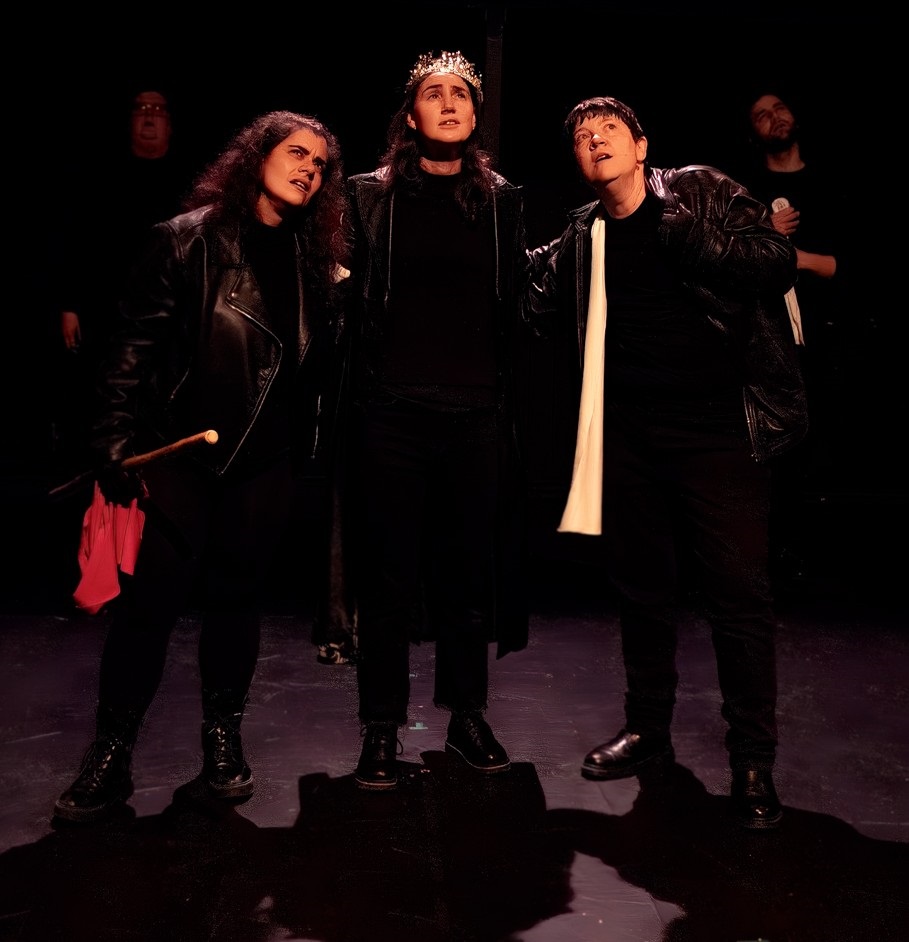
The Yorks in York: Sonia Di Lorenzo’s George Clarence, left, Katie Flanagan’s Edward IV and Harry Summers’ Richard, Duke of Gloucester. Picture: John Saunders
Philip Massey’s stentorian-voiced Talbot, Maggie Smales’s turncoat Warwick and Yousef Ismail’s vainglorious Charles Dauphin bring eye-catching character to supporting roles in a production in which bellicose ensemble heft has equal weight with blunted individual journeys, where Richard Gloucester is not alone in being “myself alone”.
Adding to the international flavour, American actress Katie Flanagan takes to an English stage for the first time in the role of Edward IV, a late arrival in proceedings but well worth the wait for a supremely assured performance.
Defining Henry VI as “a cautionary tale of power and greed that shows how a tyrant can rise in a torn and broken society”, Appel has made it feel anything but a History play, but a play for the madness, malevolence and mayhem of today.
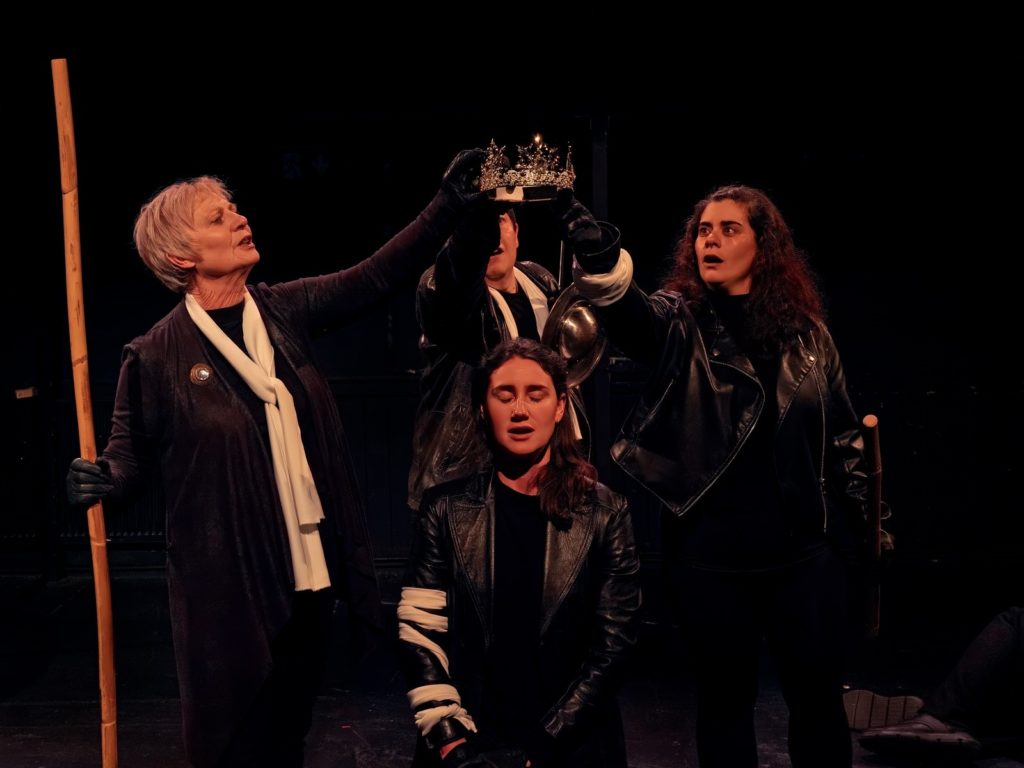
Crowning moment for Katie Flanagan’s Edward IV in the courtly company of Maggie Smales’s Warwick, left, Harry Summers’ Richard Gloucester and Sonia Di Lorenzo’s George Clarence. Picture: John Saunders
In the raw, high-energy style of his Naked Shakes productions at UC Santa Barbara, he makes imaginative, impactful, intelligent, instinctive theatre out of “a bare space, a crown and a throne”. It is truly international, but resonant in York too, especially with its image of Richard York’s severed head being stuck on “the gates of York”.
York International Shakespeare Festival presents York Shakespeare Project in Henry VI: I Am Myself Alone, Theatre@41, Monkgate, York, until Saturday, 7.30pm plus 2.30pm Saturday matinee. Box office: yorkshakes.co.uk or tickets.41monkgate.co.uk.
A Conversation with Irwin Appel, interviewed by Professor Anne-Marie Evans, York St John University Creative Centre Auditorium, Saturday, 5pm, admission free; tickets at yorkshakes.co.uk.
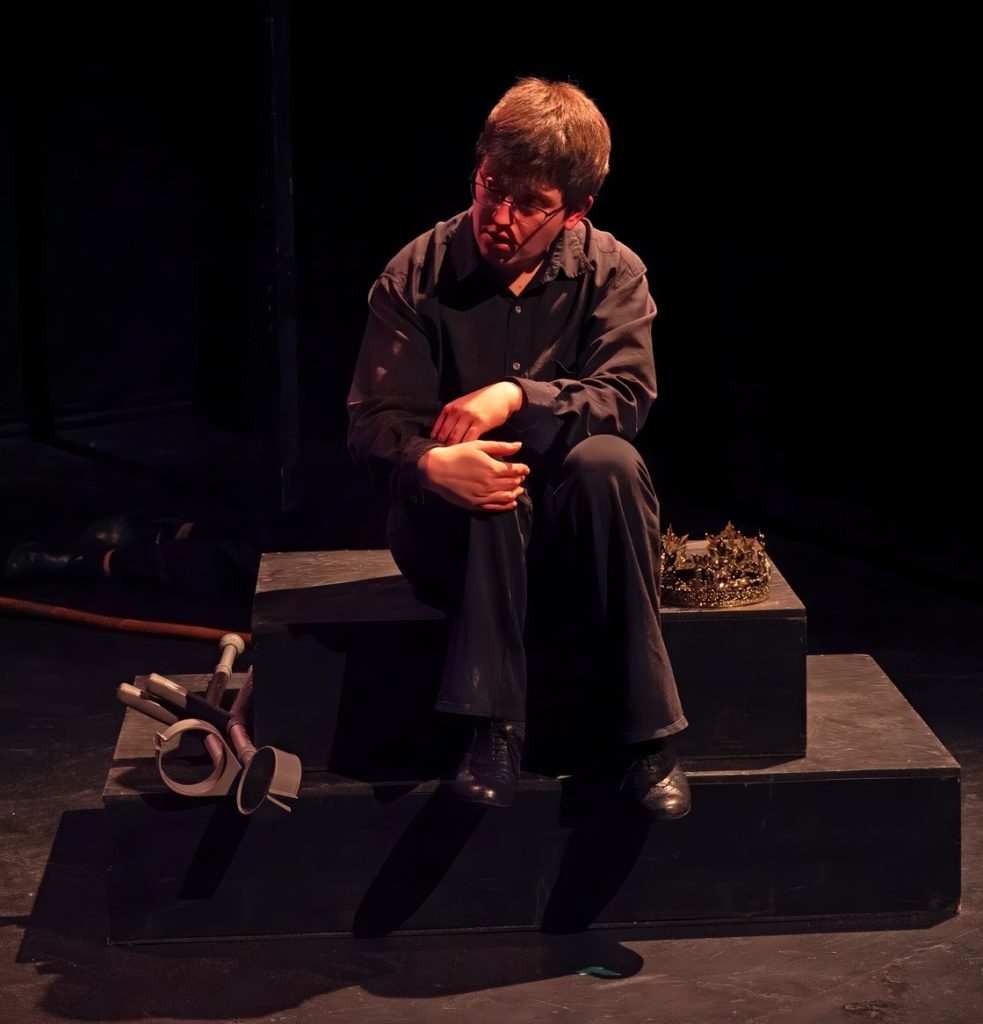
“I am myself alone”: The loneliness of George Young’s Henry VI in Irwin Appel’s condensed version of Henry VI, Parts 1, 2 and 3. Picture: John Saunders

